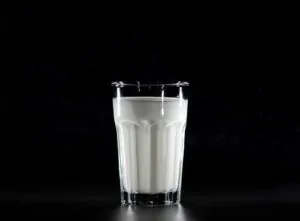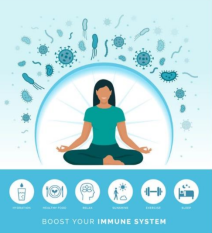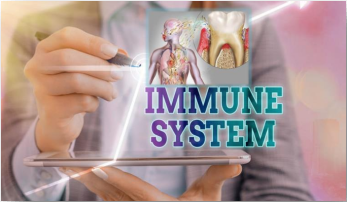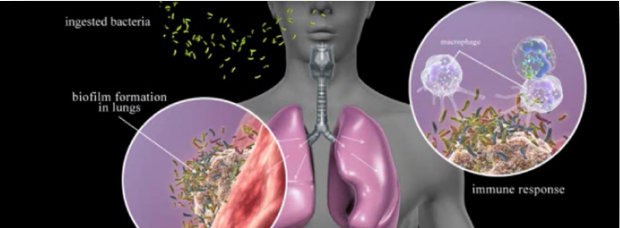Archives

Cow’s Milk
The tried-and-true milk choice of dentists and many healthcare professionals is good old fashioned cow’s milk and for good reason. Cow’s milk is packed with two of the most important ingredients that our teeth (and our bones!) need to stay strong and healthy. We’re talking about the combination of calcium and vitamin D. This powerful duo is crucial for replenishing minerals in the teeth. You see, tooth enamel weakens when it’s attacked by acids and its otherwise suburb protection is diminished. This leaves teeth at increased risk of infection, decay, and cavities. To help remineralize tooth enamel, we need to supply our bodies with calcium and vitamin D, and as you know, cow’s milk is an excellent source of these two minerals.
Soy Milk
Soy milk, on the other hand, still contains calcium and vitamin D but in significantly lower amounts. But that’s not all. One study found that bacteria commonly found in the mouth produced five to six times more acid when introduced to soy milk as compared to cow’s milk. An increase in acid means an increase in enamel erosion as well as an increase in the risk of decay and cavities. Keep in mind, this was one study and more research is needed to suggest a strong correlation between soy milk and cavities.
A Few Exceptions
While the benefits of cow’s milk can certainly help build strong, healthy teeth and bones, some people can’t drink it due to lactose intolerance. Those who are lactose intolerant have trouble digesting lactose, which is naturally occurring in cow’s milk and other dairy products. Instead of cow’s milk, individuals with lactose intolerance should choose a type of milk that’s easier to digest, such as calcium-fortified coconut or almond milk.
Other exceptions to choose an alternative to cow’s milk may be for religious, moral, or dietary reasons. In all cases, it’s important to your dentist in Sparks that those who can’t drink cow’s milk should supplement their calcium intake with other foods such as nuts, seeds, fish, and vegetables, and to talk with their doctor about whether or not they need a calcium supplement.
As always, even though diet plays an important role in oral health, it’s still incredibly important that you and your family see your Sparks dentist every six months. These dental checkups give your dentist the opportunity to ensure that there aren’t any tiny problems lingering around just waiting to cause a bigger, potentially painful problem, and they give your dental hygienist the chance to thoroughly clean those pearly whites. Plus, it’s always nice to you.
If it’s been longer than six months since your last dental visit, call us to schedule an appointment today!

Risks Associated with Dry Mouth
The truth is, living with a dry mouth day in and day out isn’t only uncomfortable, it can be bad for your overall oral health, too. You see, when the mouth feels dry it means that your saliva glands aren’t producing enough spit to keep your mouth lubricated and moist. A healthy mouth is constantly producing saliva which helps neutralize plaque acids, rinse away bad bacteria that could cause decay, and remove leftover food particles. However, when someone is experiencing dry mouth, there’s not enough saliva to perform those jobs properly. In turn, this increases the likelihood of having bad breath, developing cavities, and other serious oral health problems that require treatment from your Sparks dentist.
What Causes Dry Mouth?
There are several possible explanations for an individual’s dry mouth. For example, if you’re only experiencing dry mouth for a short period of time, it may simply indicate dehydration. Drinking more water throughout the day can make a big difference. On the other hand, there are times when dry mouth seems as if it’s never going to go away. If this happens, you may need to talk with your dentist in Sparks about what may be causing it. Some common causes of chronic dry mouth include:
- Medications. If you read the label or insert that accompanies your medications, you shouldn’t be surprised to see dry mouth listed as a common side effect. Tons of medications can contribute to dry mouth. Anything from anxiety and blood pressure medicines to cancer treatment can cause dry mouth, so it’s important to read those warning labels and inserts. If your medication may be to blame for your dry mouth, don’t stop it without talking to your doctor first. You should also ask your dentist about some ways you can combat dry mouth that’s caused by medication.
- Diseases & Other Health Problems. If you have other health problems or certain diseases, you may be at increased risk for dry mouth, too. Some diseases that are known to cause dry mouth include, but are not limited to, Sjögren’s syndrome, HIV/AIDS, and diabetes.
- Tobacco & Alcohol. Smoking, using smokeless tobacco, and drinking alcohol all naturally have a drying effect on the mouth. Since these are often regular habits that people engage in often, the mouth is constantly being dried out. The best way to stop dry mouth caused by tobacco or alcohol is to quit or, at a minimum, cut back.
- Mouth Breathing. We’ve all had to breathe out of our mouths during a wicked cold or during allergy season when the nose is too stuffed up to allow air through. But some people naturally breathe out of their mouths instead of their noses, especially during sleep. However, when the mouth is opened for prolonged periods of time and the inside is constantly exposed to air dries, the result is an uncomfortably dry mouth.
Signs & Symptoms
Most sufferers of dry mouth know they have dry mouth simply by the feeling alone. However, some other common symptoms of dry mouth include:
- Cracked, dry lips
- Difficulty swallowing, chewing, or speaking
- Dry throat or tongue
- Bad breath
The good news is dry mouth can often be treated successfully with intervention from your dentist in Sparks. There are also things you can do at home to lower your risk of dry mouth such as:
- Drinking plenty of water throughout the day
- Limiting your intake of caffeinated or alcoholic beverages
- Chewing sugarless gum to stimulate salivary glands
You don’t have to live with a dry mouth. If you’re ready to talk about how we can help, give us a call today to schedule an appointment.
Re-posted with the permission of Perio Protect.
 One of the strongest defenses we have against virus’, such as COVD-19, is a robust immune system so we can fight infection – that’s why we’re doing our best to help our patients boost their immunity.
One of the strongest defenses we have against virus’, such as COVD-19, is a robust immune system so we can fight infection – that’s why we’re doing our best to help our patients boost their immunity.
There are a number of scientifically-based recommendations to help boost your immune system such as eating nutritious foods and balancing our diet, making sure to get adequate sleep and physical activity, getting outdoors for some sunshine, and managing stress.

But also, research suggests that treating chronic infections, including in the mouth, may help improve immunity.

Poor oral health influences immunity and if periodontal disease (gum disease) is left untreated, it may negatively impact your overall immunity.

For many years we’ve known that bacteria from gum disease can be aspirated into the lungs. When this happens, the lung’s ability to fight infection is disrupted, which may increase the risk for co-infections, such as virus’, like COVID-19.

That’s why, more than ever before, we’re being especially diligent in examining patients for gum disease or any signs of oral inflammation. And, for those who have gum disease, it’s important to get treated as soon as possible.
Thorough oral hygiene will reduce the bad bacteria in your mouth. That’s a good thing! This includes brushing your teeth twice a day with an anti-microbial toothpaste, and cleaning in between your teeth with floss or pics. A water irrigation device and antimicrobial mouthwashes are other tools for keeping your mouth clean. The goal is to decrease the bacterial burden in your mouth.
© 2020 Casey Hein BSDH, RDH, MBA. All Rights Reserved
